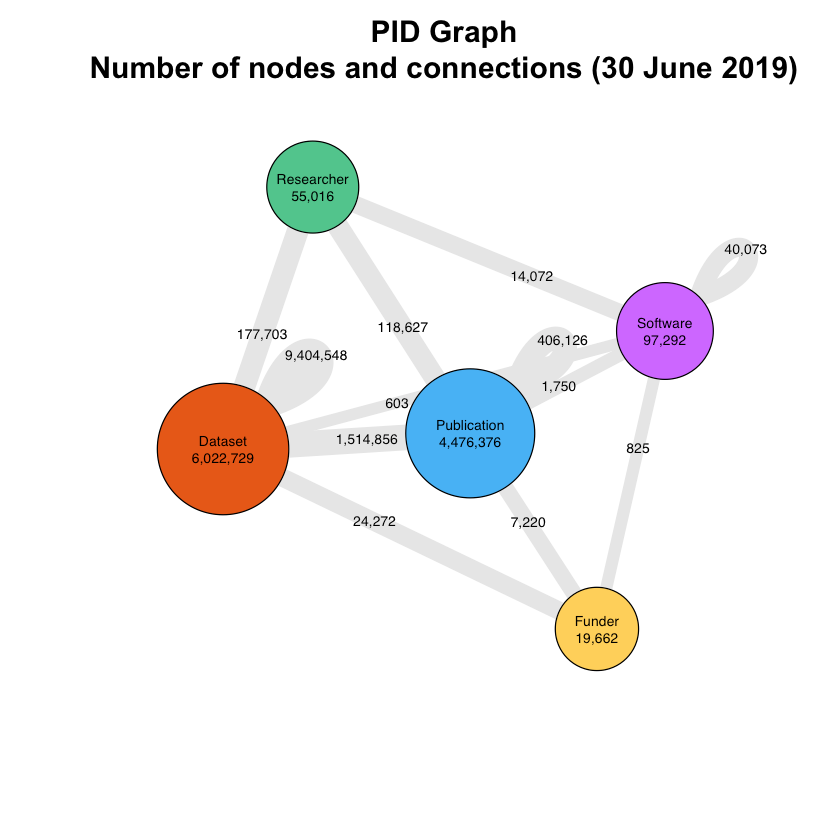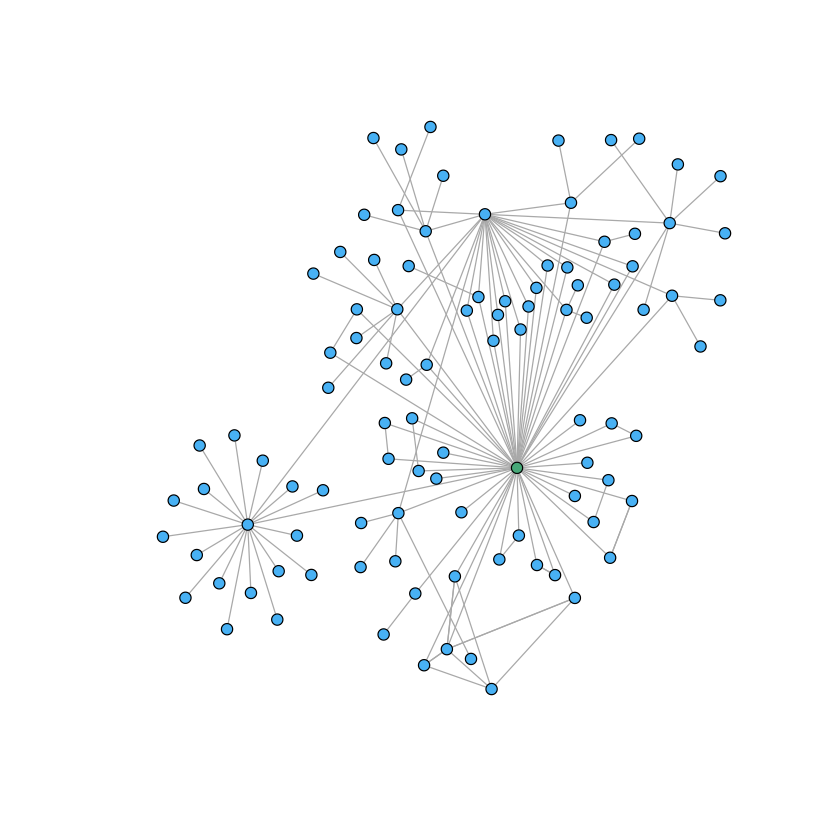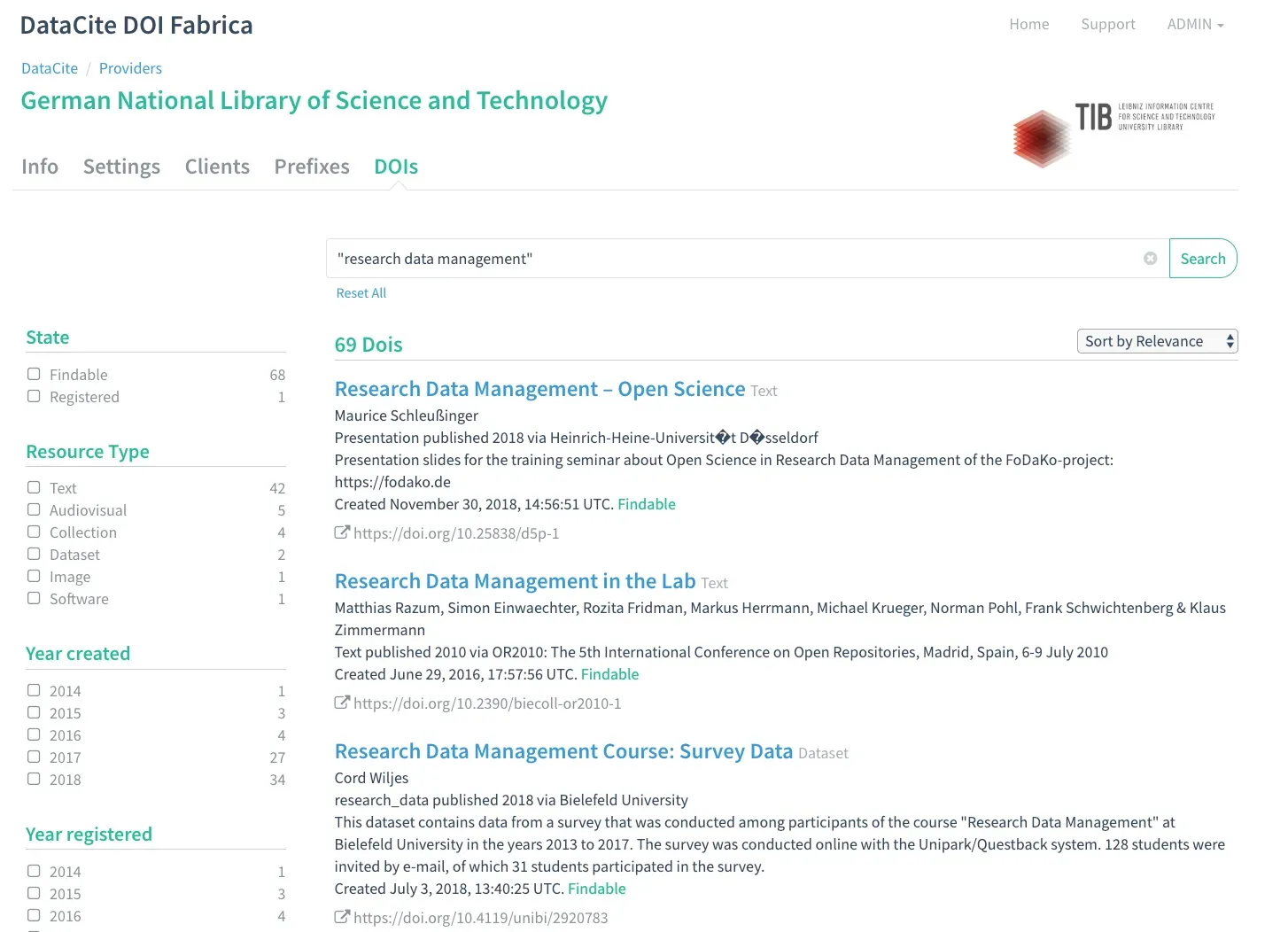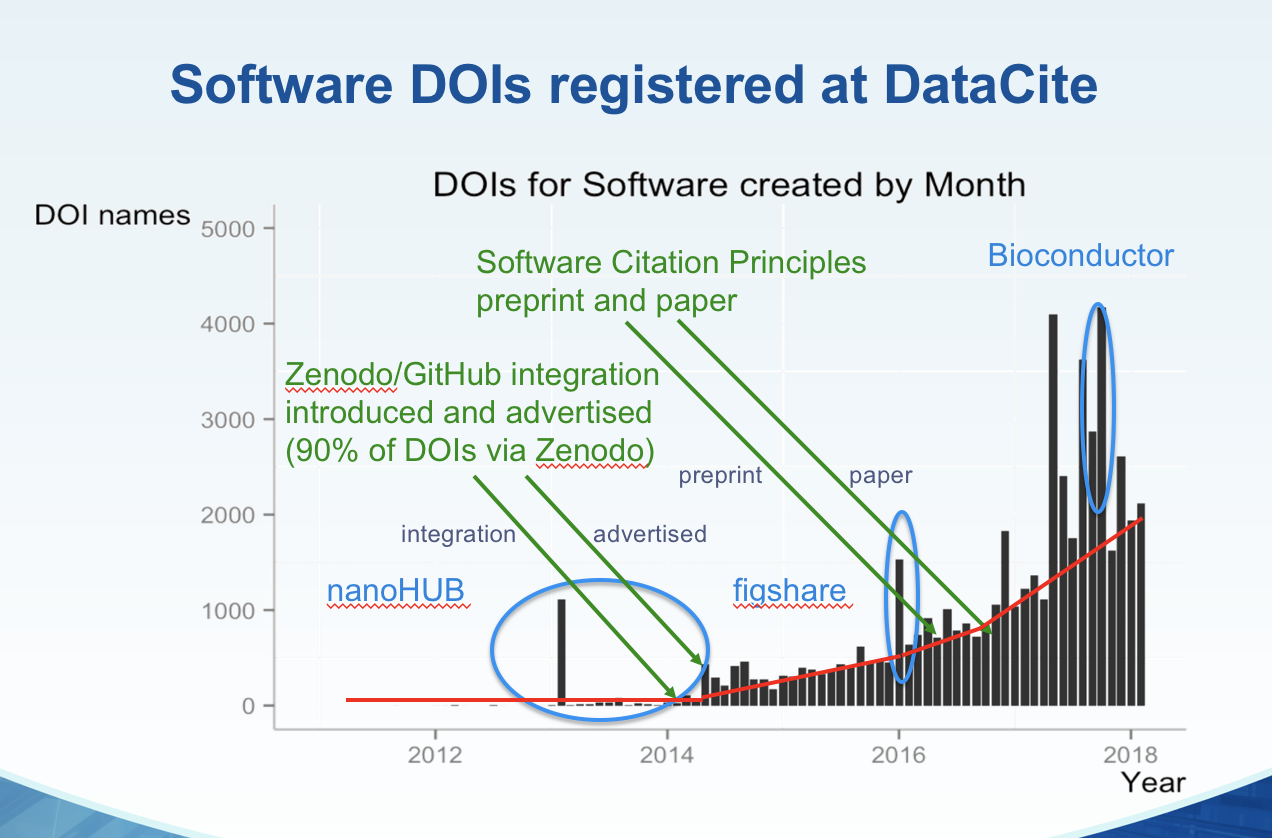
The connections between scholarly resources generated by persistent identifiers (PIDs) and associated metadata form a graph: the PID Graph [Fenner & Aryani (2019)]. We developed this PID Graph concept in the EC-funded FREYA project, and have identified important use cases and technical requirements. In May, DataCite introduced a GraphQL API to standardize and simplify how users can contribute to and consume the PID Graph [Fenner (2019b)].









